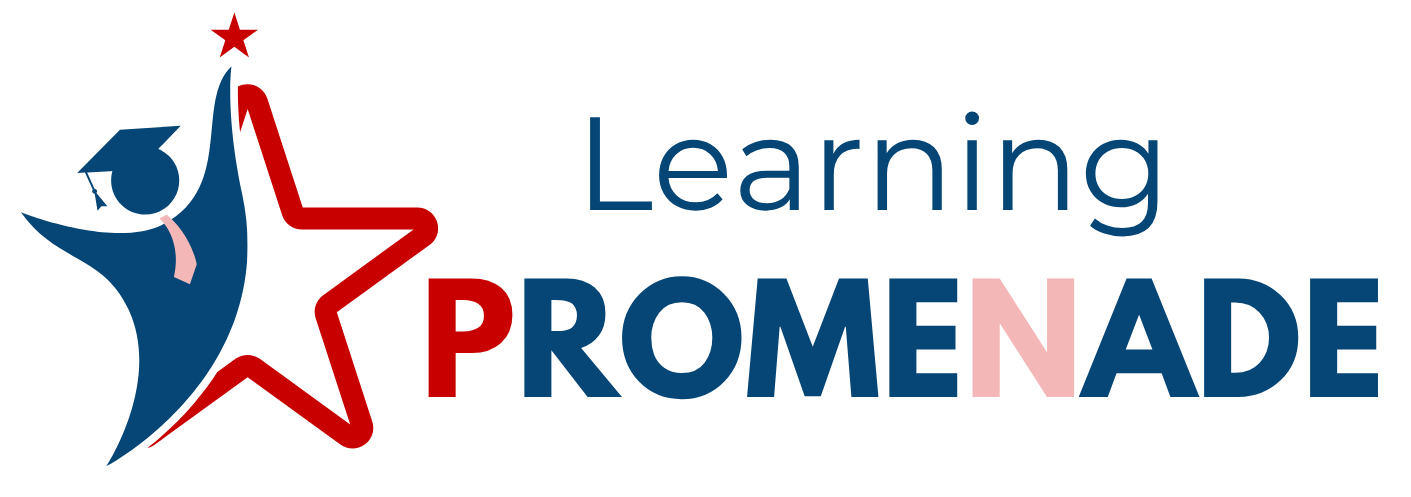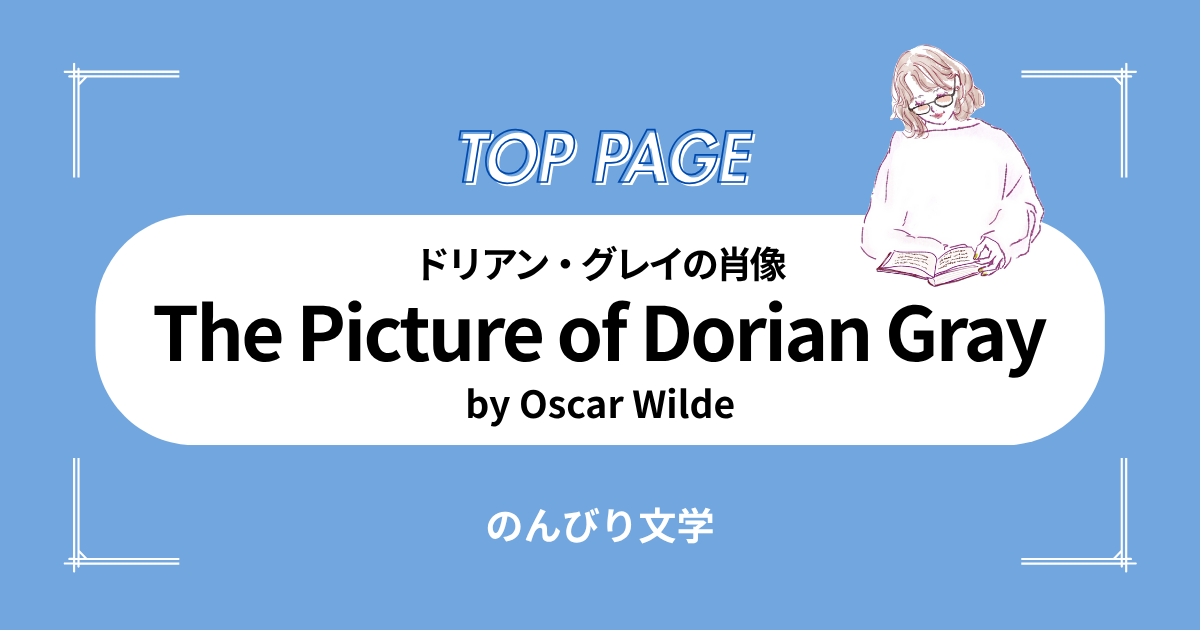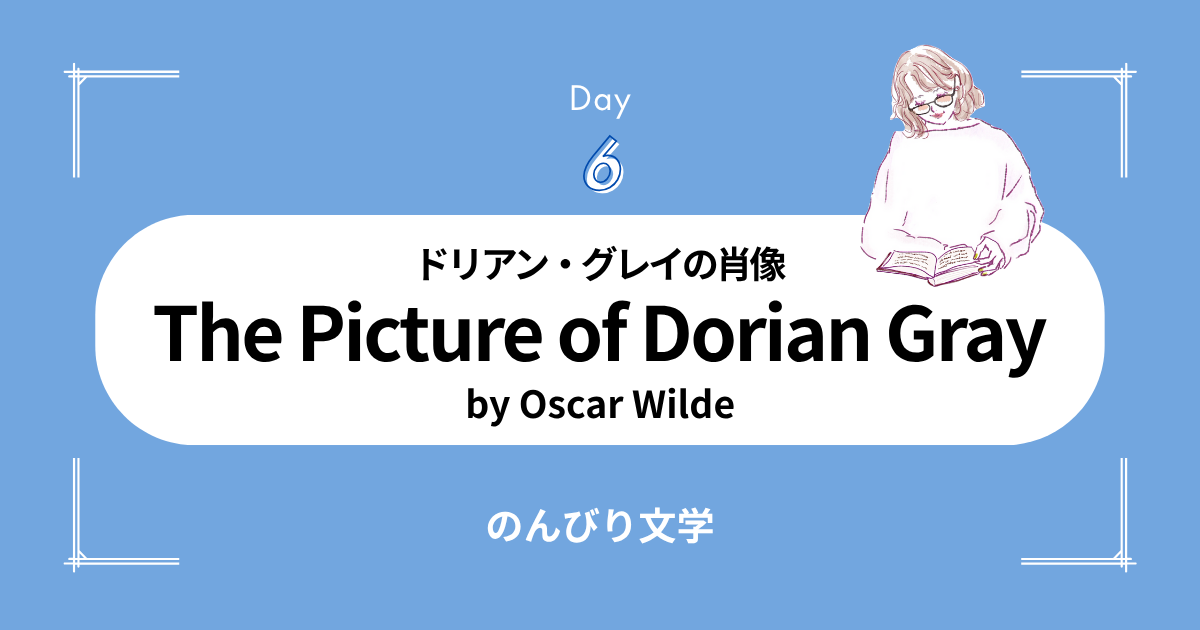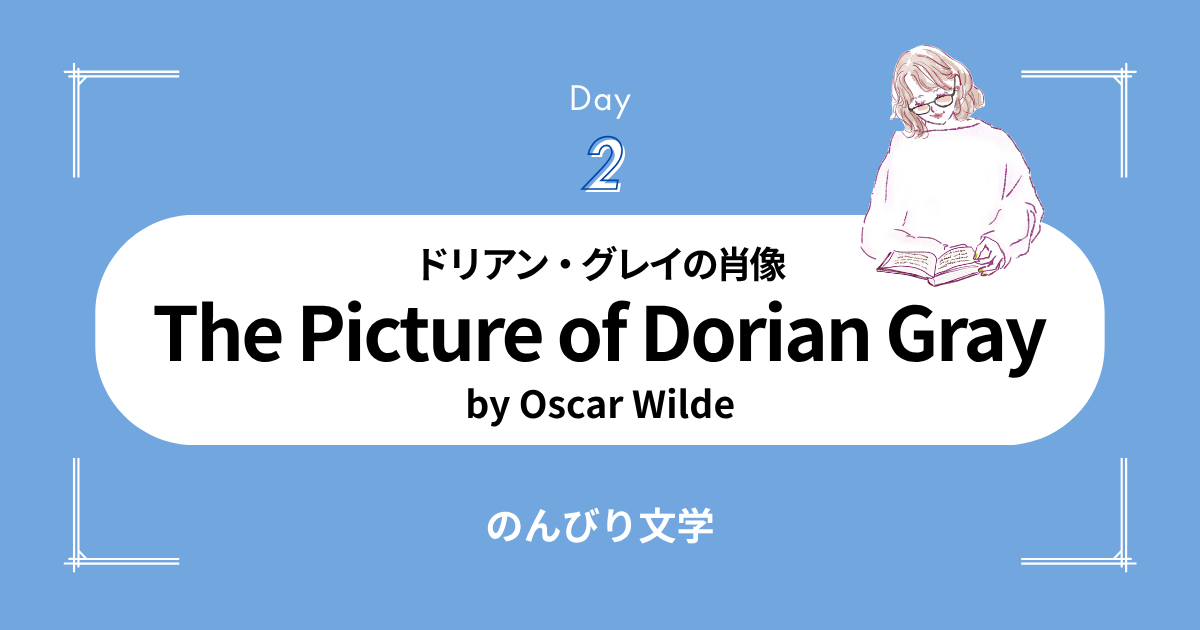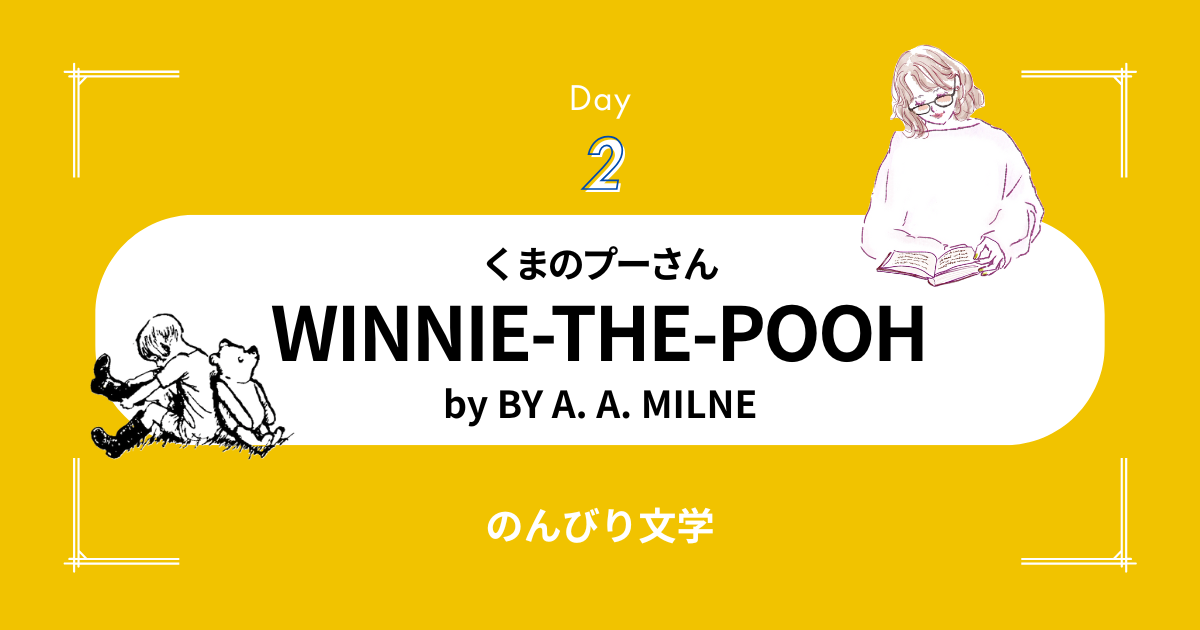【3】プーさん、空から落ちる!?風船ではちみつを狙う英語冒険記
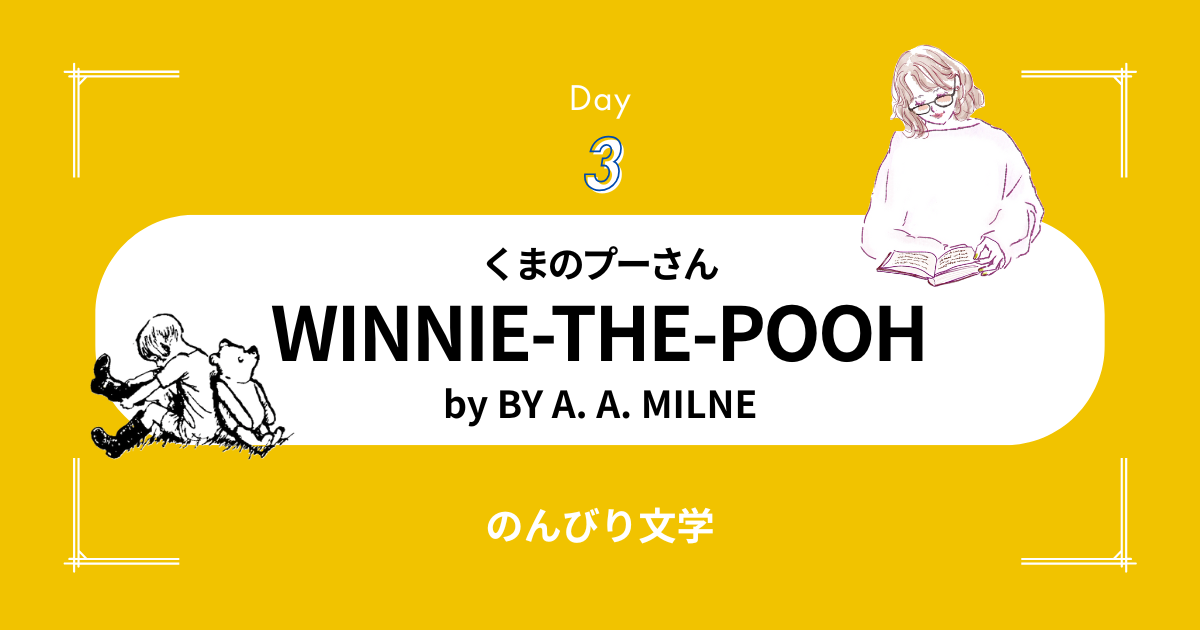
当サイトでは、著作権切れとなった洋書を扱う Project Gutenberg より、文学作品や小説をDLし、学習の素材として使用しています。
タイトル:WINNIE-THE-POOH(くまのプーさん)
著者:BY A. A. MILNE
初版発行:1926年(イギリス)
〔あらすじ〕
物語の舞台は、100エーカーの森という静かな場所。そこには、ちょっとおとぼけで食いしん坊な「くまのプーさん(Winnie-the-Pooh)」と、その仲間たちが暮らしています。プーは、森で起こるささやかな出来事を通して、友情や冒険を体験していきます。
ある日、プーは大好物のハチミツを手に入れようとして、風船につかまって空を飛び上がる作戦に出ますが、うまくいかずに大騒動に。また別の日には、小さな仲間ピグレットとともに「北極探検」と称して冒険に出かけたり、ロバのイーヨーのなくなったしっぽをみんなで一緒に探したりします。

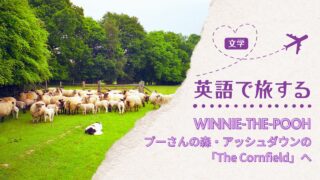
森が大雨で水浸しになった際には、仲間の一人を助けるために勇気をふるい、ささやかだけれど心温まる救出劇も描かれます。その他にも、元気いっぱいのティガーの登場や、おせっかいだけど頼れるラビット、思いやり深いカンガとルーなど、個性豊かなキャラクターたちとの日常が、優しいユーモアと温もりあふれるタッチで綴られていきます。
物語を通して、登場人物たちはささいな出来事に一喜一憂しながらも、互いを思いやり、支え合う姿を見せてくれます。その純粋さと愛らしさが、『Winnie-the-Pooh』を世代を超えて読み継がれる名作へと押し上げています。
この作品は全編を通して 約25,000 words が使われています。
1日に 300~500 words 程度に区切りながら、ゆっくりと読み進めていきたいと思いますので、Day1から順にご自身のペースでお楽しみください。
はじめに
今回は、クマのプーさんが「はちみつを食べたい一心」で木に登る場面の続きです。
プーさんのユーモラスな歌や木からの転落シーン、そしてクリストファー・ロビンとの会話から、英語独特のリズムや感情表現を学びましょう。
風船で蜂の巣に近づこうとする“プー式作戦”も登場。
やさしい表現が満載の中で、「if only」や「what I meant to do」など、仮定法や口語表現の実践練習にも最適です。
本文を読む
CHAPTER I(前回からの続き)
IN WHICH WE ARE INTRODUCED TO WINNIE-THE-POOH AND SOME BEES, ANDTHE STORIES BEGIN
He climbed and he climbed and he climbed, and as he climbed he sang a little song to himself. It went like this:
Isn’t it funny
How a bear likes honey? Buzz! Buzz! Buzz!
I wonder why he does?
Then he climbed a little further … and a little further … and then just a little further. By that time he had thought of another song.
It’s a very funny thought that, if Bears were Bees, They’d build their nests at the bottom of trees.
And that being so (if the Bees were Bears),
We shouldn’t have to climb up all these stairs.
He was getting rather tired by this time, so that is why he sang a Complaining Song. He was nearly there now, and if he just stood on that branch …
Crack!
“Oh, help!” said Pooh, as he dropped ten feet on the branch below him.
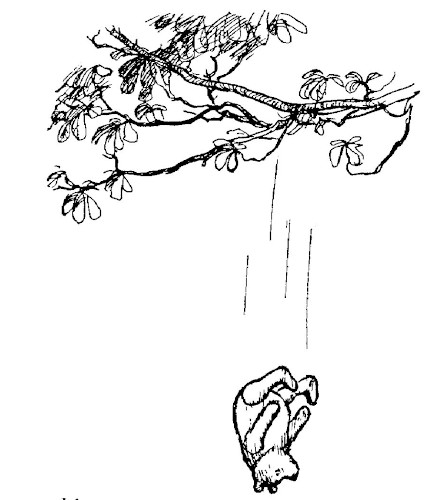
“If only I hadn’t⸺” he said, as he bounced twenty feet on to the next branch.
“You see, what I meant to do,” he explained, as he turned head-over-heels, and crashed on to another branch thirty feet below, “what I meant to do⸺”
“Of course, it was rather⸺” he admitted, as he slithered very quickly through the next six branches.
“It all comes, I suppose,” he decided, as he said good-bye to the last branch, spun round three times, and flew gracefully into a gorse-bush, “it all comes of liking honey so much. Oh, help!”
He crawled out of the gorse-bush, brushed the prickles from his nose, and began to think again. And the first person he thought of was Christopher Robin.
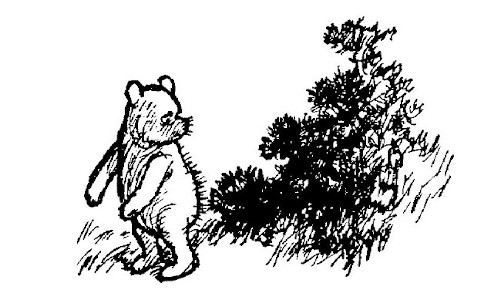
(“Was that me?” said Christopher Robin in an awed voice, hardly daring to believe it.
“That was you.”
Christopher Robin said nothing, but his eyes got larger and larger, and his face got pinker and pinker.)
So Winnie-the-Pooh went round to his friend Christopher Robin, who lived behind a green door in another part of the forest.
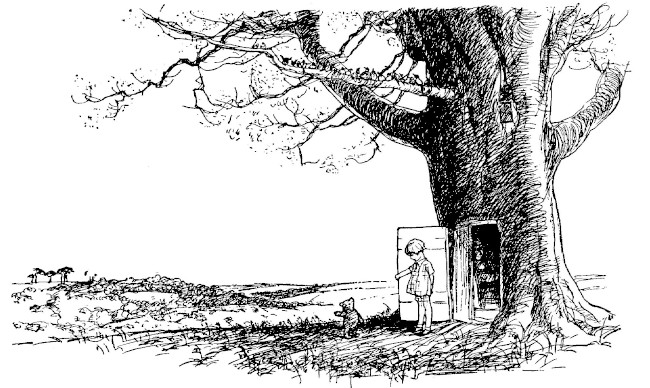
“Good morning, Christopher Robin,” he said.
“Good morning, Winnie-ther-Pooh,” said you.
“I wonder if you’ve got such a thing as a balloon about you?” “A balloon?”
“Yes, I just said to myself coming along: ‘I wonder if Christopher Robin has such a thing as a balloon about him?’ I just said it to myself, thinking of balloons, and wondering.”
“What do you want a balloon for?” you said.
Winnie-the-Pooh looked round to see that nobody was listening, put his paw to his mouth, and said in a deep whisper: “Honey!”
“But you don’t get honey with balloons!” “I do,” said Pooh.
重要単語の確認
nest(名詞)/nest/
巣
鳥や蜂などが住む場所を指す。「蜂の巣」は “bee’s nest” と表現されることもあり、ここではユーモアを交えた仮定の歌の中に登場
branch(名詞)/bræntʃ/
枝
木登りや転落シーンに頻出する語。文中では「彼が落ちる枝」の意味で連続して登場し、物理的な描写に加え、ユーモラスな効果も演出している。
prickle(名詞)/ˈprɪk(ə)l/
とげ、とげとげ
植物や茂みのとげを表す語。作中では「gorse-bush(ハリエニシダ)」のトゲが鼻についたという描写で使われており、視覚的なユーモアと痛みを表している。
gracefully(副詞)/ˈɡreɪsfəli/
優雅に
本来は「上品に、美しく」の意味だが、作中では「落下しながら優雅に飛び込む」という逆説的なユーモア表現として使われている。
whisper(動詞・名詞)/ˈwɪspər/
ささやく/ささやき
秘密をこっそり伝える場面に使われる語。プーが「はちみつ」を秘密のようにそっと言う場面で使用され、かわいらしさと目的意識を感じさせる演出。
complain(動詞)/kəmˈpleɪn/
不満を言う、文句を言う
“Complaining Song(文句の歌)”という表現で使用。歌にユーモラスに文句を込めるプーの性格が現れる重要単語。
balloon(名詞)/bəˈluːn/
風船
子どもが使うようなシンプルな語だが、ここでは“はちみつを取るための道具”として奇想天外な作戦に使われる。
bounce(動詞)/baʊns/
跳ねる
プーが枝から枝へと跳ね落ちる描写で使用。視覚的かつ音的な描写を助ける語。
slither(動詞)/ˈslɪðər/
すべるように落ちる、滑る
ヘビのようにすべる動作や、プーの連続的な落下を描写する際に用いられる。動きの連続性を強調。
suppose(動詞)/səˈpəʊz/
~だと思う、仮定する
「I suppose ~」という形で、考えを述べるときの表現。ここではプーが「はちみつを好きすぎるせいだろうな」と自己分析する場面に使われる。
覚えておきたい表現
if only I hadn’t…
~しなければよかったのに
仮定法過去完了の口語表現
what I meant to do
本当はやろうとしたこと
弁解や説明のときによく使われる表現
all comes of ~
~が原因である
結果の理由を述べるカジュアルなフレーズ
got larger and larger
どんどん大きくなった
比較級+and+比較級で「どんどん~」。感情や変化の描写に便利
uch a thing as ~
~のようなもの
具体的な物について尋ねるときの丁寧な言い回し
本文と対訳
He climbed and he climbed and he climbed, and as he climbed he sang a little song to himself.
彼は登って、登って、また登って、登りながら自分に小さな歌を歌っていました。
Isn’t it funny / How a bear likes honey? / Buzz! Buzz! Buzz! / I wonder why he does?
「おかしいなぁ、クマがはちみつ好きって。ブンブンブン!なんでだろ?」
Then he climbed a little further … and a little further … and then just a little further.
そして彼は、もう少し…もうちょっと…さらに少しだけ登りました。
By that time he had thought of another song.
その頃には、別の歌を思いついていました。
It’s a very funny thought that, if Bears were Bees, / They’d build their nests at the bottom of trees.
「もしクマがハチだったら、木の根元に巣を作るって、面白い考えだよね」
And that being so (if the Bees were Bears), / We shouldn’t have to climb up all these stairs.
「だって、もしハチがクマだったら、こんなに木に登る必要もないもんね」
He was getting rather tired by this time, so that is why he sang a Complaining Song.
この頃には、彼もけっこう疲れていたので、文句の歌を歌っていたのでした。
Crack!
パキッ!
“Oh, help!” said Pooh, as he dropped ten feet on the branch below him.
「おお、たすけて!」とプーは叫び、下の枝に10フィート落ちました。
“If only I hadn’t⸺” he said, as he bounced twenty feet on to the next branch.
「もしあんなことしなければ―」と言いながら、次の枝に20フィート跳ねて落ちました。
“You see, what I meant to do,” he explained, as he turned head-over-heels, and crashed on to another branch thirty feet below, “what I meant to do⸺”
「つまりね、ぼくがやろうとしてたのはね…」と説明しつつ、宙返りしながらさらに30フィート下の枝に激突しました。
“Of course, it was rather⸺” he admitted, as he slithered very quickly through the next six branches.
「もちろん、それはちょっとね…」と認めながら、次の6本の枝をすごい速さで滑り落ちていきました。
“It all comes, I suppose,” he decided, as he said good-bye to the last branch, spun round three times, and flew gracefully into a gorse-bush, “it all comes of liking honey so much. Oh, help!”
「ぜんぶ、きっと…」と彼は思いながら最後の枝にさよならを言い、3回くるくる回転して、優雅にハリエニシダの茂みに飛び込みました。「全部、はちみつが好きすぎるせいだよ。おお、たすけて!」
He crawled out of the gorse-bush, brushed the prickles from his nose, and began to think again.
彼はハリエニシダから這い出して、鼻についたトゲを払い落とし、また考え始めました。
And the first person he thought of was Christopher Robin.
そして最初に思いついたのは、クリストファー・ロビンでした。
(“Was that me?” said Christopher Robin in an awed voice, hardly daring to believe it.
“That was you.”
Christopher Robin said nothing, but his eyes got larger and larger, and his face got pinker and pinker.)
(「それって僕のこと?」とクリストファー・ロビンはおそるおそる聞きました。
「そう、君のことだよ。」
クリストファー・ロビンは何も言わなかったけれど、目はどんどん大きくなり、顔はどんどん赤くなっていきました。)
“Good morning, Christopher Robin,” he said.
「おはよう、クリストファー・ロビン」
“Good morning, Winnie-ther-Pooh,” said you.
「おはよう、ウィニー・ザ・プー」
“I wonder if you’ve got such a thing as a balloon about you?”
「君、もしかして、風船なんか持ってたりしない?」
“A balloon?”
「風船?」
“Yes, I just said to myself coming along: ‘I wonder if Christopher Robin has such a thing as a balloon about him?’ I just said it to myself, thinking of balloons, and wondering.”
「そう、さっき歩きながらふと思ったんだ。『クリストファー・ロビンって風船とか持ってないかな?』って。そう思って、風船のことを考えてたんだ」
“What do you want a balloon for?” you said.
「風船なんて、何に使うの?」
Winnie-the-Pooh looked round to see that nobody was listening, put his paw to his mouth, and said in a deep whisper: “Honey!”
プーさんは辺りを見回し、誰も聞いていないのを確かめると、手を口に当ててささやきました。「はちみつ!」
“But you don’t get honey with balloons!”
「でも、風船じゃはちみつは取れないよ!」
“I do,” said Pooh.
「ぼくは取れるよ」とプーが言いました。
理解度チェック
今日のリーディン範囲について、理解度をチェックしてみましょう。
以下の文の空欄に適切な語を選んでください。
Q1. Pooh thinks that if Bears were Bees, they would __.
(A)make honey in jars
(B)build nests in caves
(C)live in houses
(D)build their nests at the bottom of trees
- 解答はここをクリック
-
正解:(D)build their nests at the bottom of trees
プーの歌の中で「木の根元に巣を作る」とある。
Q2. Pooh decides to visit Christopher Robin because __.
(A)he got lost in the forest
(B)he wants a balloon
(C)he needs a ladder
(D)he wants to borrow a book
- 解答はここをクリック
-
正解:(B)he wants a balloon
風船が必要で、クリストファー・ロビンに会いに行く。
Q3. What does Pooh do when he becomes tired from climbing?
(A)He gives up and goes home
(B)He sings a Complaining Song
(C)He takes a nap
(D)He asks for help
- 解答はここをクリック
-
正解:(B)He sings a Complaining Song
疲れたので「文句の歌(Complaining Song)」を歌う。
Q4. How does Christopher Robin react when he hears about himself in the story?
(A)He becomes angry
(B)He asks to stop the story
(C)He blushes and listens silently
(D)He corrects the narrator
- 解答はここをクリック
-
正解:(C)He blushes and listens silently
目が大きくなり、顔が赤くなったと描写される。
Q5. Why does Pooh whisper “Honey”?
(A)He is embarrassed
(B)He wants to keep it a secret
(C)He’s afraid of bees
(D)He doesn’t know the word for honey
- 解答はここをクリック
-
正解:(B)He wants to keep it a secret
プーは周囲を見回し、誰も聞いていないのを確かめてからささやいている。
まとめ
今回の場面では、プーさんの「はちみつ大好き」が原因で起きるドタバタ劇と、彼らしい発想で風船を使おうとするシーンが描かれました。
英語では、登場人物の性格や感情をユーモアを交えて表現する工夫が満載です。
“if only I hadn’t” や “what I meant to do” など、日常会話にも使える表現も学べましたね。
次回は、プーさんが実際に風船で“空を飛ぶ”場面へと続きます。
お楽しみに!
